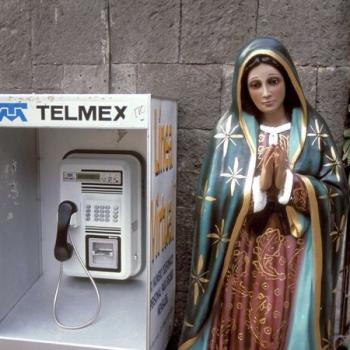Finally, all Catholics live with the residue of a pre- and post-Vatican II Catholicism. The dramatic changes of the 1960s that reverberated through the 1970s shifted the landscape of American Catholicism, and Catholics continue to respond to those changes today. Yet, Generation X and Y Catholics (born after 1968) and especially Millennial Catholics (born after 1980) have no memory of a pre-Vatican II Church. We only know our parents' and grandparents' stories of memorizing altar-boy Latin, making sure your head was covered for Mass, worrying about what would happen if the host stuck to the roof of your mouth. Though they shape a very visceral oral history of Catholicism, these are not our stories. We are in the midst of making our own stories -- stories of folk Masses, and writing petitions and stapling them to construction paper for grade school Mass, and CCD, and World Youth Day, and LifeTeen youth groups.
The future of Catholicism seems very much to rest on how we young Catholics decide to remember and tell our own stories. We have a tendency to explain our own Catholicism in terms that reflect our ancestors' pre/post-Vatican II dichotomy. Certainly, this is one way the future of Catholicism may very well develop. But it also seems possible that if young Catholics more honestly grapple with how and why we are Catholic, we might emerge with a very different version of what Catholicism is and how we do it.
Kate Dugan is a Ph.D. student in Religious Studies at Northwestern University.
Jennifer Owens recently completed her Master of Divinity at Harvard Divinity School and began doctoral studies in systematic and philosophical theology at the Graduate Theological Union in the fall of 2009.
Kate and Jen are co-editors of From the Pews in the Back: Young Women and Catholicism (Liturgical Press, 2009). Follow their writing at http://fromthepewsintheback.com.




